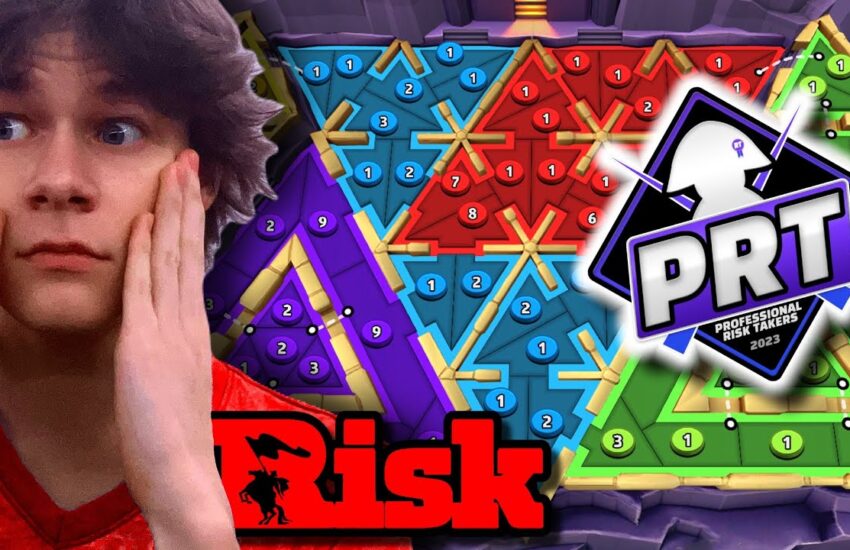Specialized Risk Competitions
Specialized risk competitions are unique events that bring together teams and individuals to engage in challenges that assess their strategic thinking, risk management, and decision-making skills. These competitions can take various forms, including academic challenges, business simulations, or tactical sports. In the modern world, the importance of understanding risk is not just confined to finance or business but extends to various fields encompassing technology, healthcare, and environmental management. In this article, we will explore the concept of specialized risk competitions, their importance, structure, and the benefits they offer to participants.
Understanding Specialized Risk Competitions
Specialized risk competitions are designed to simulate real-world scenarios where participants must navigate uncertainty and make decisions under pressure. These competitions can serve various purposes:
- Educational: Helping participants learn about risk analysis and management.
- Professional development: Enhancing skills relevant to careers in finance, business, and other fields.
- Networking: Connecting like-minded individuals and professionals in the industry.
The Importance of Risk Competitions
Understanding and managing risks is crucial in today’s complex world. Specialized risk competitions help participants:
- Build a deeper understanding of risk assessment techniques.
- Enhance their analytical thinking and decision-making abilities.
- Prepare for real-life scenarios where quick thinking is essential.
Real-World Applications
Competitions often mirror real-world challenges faced by businesses today. For example, a competition that simulates market dynamics can help participants understand how to respond to market fluctuations and competitor actions, as seen in business environments.
Types of Specialized Risk Competitions
There are several types of specialized risk competitions, each focusing on different aspects of risk management and decision-making:
Business Strategy Competitions
These competitions challenge teams to develop strategic plans for hypothetical or real companies. Participants must analyze market trends, identify potential risks, and create actionable strategies to improve performance.
Example: Business Model Simulation
In a business model simulation, teams may be tasked with launching a new product while considering market demand, production costs, and customer preferences.
Sports Competitions
In sports, specialized risk competitions may involve tactical challenges where teams must adapt their strategies based on their opponents’ movements and risks associated with game play.
Example: Tactical Sports Events
Teams may face unexpected situations in real-time, such as player injuries or sudden changes in game strategy, which test their decision-making capabilities under pressure.
Financial Risk Competitions
These competitions focus on risk analysis in the financial sector. Participants may be required to manage a hypothetical investment portfolio, assessing risks and returns to achieve the best financial outcome.
Example: Stock Market Simulation
Competitors simulate trading in the stock market, analyzing which stocks to buy or sell based on market conditions and their risk appetite.
Benefits of Participating in Risk Competitions
Engaging in specialized risk competitions offers participants numerous advantages:
Enhancing Skills
Competitors sharpen their analytical and problem-solving skills, which can be invaluable in any professional field.
Networking Opportunities
Participants often meet industry professionals and peers, creating valuable networks that can aid in future career endeavors.
Exposure to Real-World Scenarios
Competitions simulate real-life conditions, allowing participants to experience high-pressure decision-making environments.
How to Prepare for a Specialized Risk Competition
Preparation is key to success in these competitions. Here are some tips to help participants excel:
Study Relevant Concepts
Understanding the principles of risk management, strategic planning, and market dynamics is essential for success. Participants should familiarize themselves with relevant theories and frameworks.
Practice Decision-Making Simulations
Engaging in practice simulations can help participants apply theoretical knowledge in practical scenarios, honing their skills in a competitive setting.
Build a Strong Team
Collaborating with team members who possess diverse skills and perspectives can enhance problem-solving capabilities and lead to more successful outcomes.
Conclusion
Specialized risk competitions provide a vital platform for individuals to enhance their decision-making skills, deepen their understanding of risk management, and prepare for the challenges they may face in their professional lives. By participating in these competitions, individuals not only gain valuable experiences but also form connections that can significantly impact their careers. As the business landscape continues to evolve, the ability to navigate uncertainty will be increasingly essential, making these competitions a critical training ground for future leaders.
For more insights on this topic, check out this article and this one.

